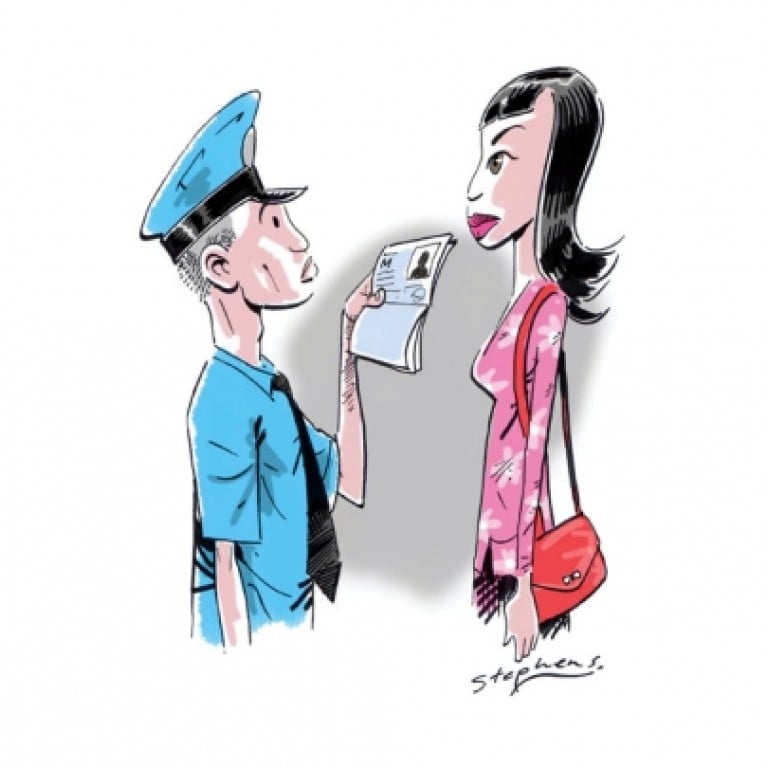
Hong Kong must do right by its transgender minority
York Chow calls for bold changes in our laws and attitudes so society may fully embrace those who have been marginalised for too long because they do not conform to gender expectations
In May, the Court of Final Appeal set a milestone for this city with its judgment on the case of Ms W, a post-operative male-to-female transsexual, who fought, against the odds, to be recognised as a woman and for the right to marry the man she loves.
Despite this victory, much remains to be done to advance equality for this oft-overlooked group of individuals whose gender identity differs from their sex at birth.
Misunderstanding and assumptions about transgender people remain rife. Consequently, many face constant anxiety and rejection. According to a 2012 survey commissioned by Community Business, 77 per cent of the working population respondents said they do not know what "transgender" means.
Currently, the Equal Opportunities Commission can only handle discrimination complaints from transgender individuals under the Disability Discrimination Ordinance, since gender identity disorder is categorised as a mental health condition. But we must do better to address the needs of this marginalised population, starting with distinct legislation to protect against discrimination on the grounds of sexual orientation and gender identity. This would bring us in line with a number of overseas jurisdictions, such as the UK, which have such legislation.
Each of us can equip ourselves with knowledge and speak out against misinformation
A significant number of transgender people face outright discrimination, loss of employment and other humiliations, big and small, in their daily lives. According to the Community Business survey, nearly one in four respondents said they are not accepting of transgender people. About 40 per cent believe these individuals face social stigma and suffer insults and mockery.
Much of this stems undoubtedly from a lack of awareness. This, in part, is due to the community's relatively small size and invisibility. Figures about the population are few and far between in Hong Kong; from October 2007 to September 2009, 86 patients were diagnosed with gender identity disorder. Some experts have argued that the number of transgender people globally is likely to be under-reported. Many may never seek support due to fear of social stigma and discrimination. But just because the number of individuals is small does not mean their voices should be ignored. A measure of any civilised society must be how we treat our most vulnerable people. Many transgender people continue to contribute to our society and speak out against injustice. They deserve understanding and equal treatment.
First, we must provide better counselling and long-term support for their physiological and social needs. I have urged the Hospital Authority to establish a multidisciplinary unit to deal with this issue, including specialists from different fields. A more holistic approach will enable transgender people to access the care they need.
Furthermore, as suggested by the Court of Final Appeal in its W ruling, the government should begin to address the process of recognising a person's acquired gender. This should take reference from overseas jurisdictions, where gender recognition is achieved by considering different factors, including living in the acquired gender for at least two years, but not necessarily gender reassignment surgery.
Indeed, many transgender individuals do not wish to undergo surgery, which can be a prolonged, drastic and painful process, and not without complications. But without a clearly defined gender recognition process, transgender individuals in Hong Kong who do not undergo an operation are in a legal limbo, unable to change their identity documents and access the rights of their identified gender.
As the court noted, "legislative intervention would also be beneficial in areas which include (apart from marriage and parenting) entitlement to benefits and pensions, discrimination, succession, the position of trustees administering trusts, sports", and so on.
Moreover, the possible incongruity between a transgender person's physical appearance and the sex on their legal documentation leaves them at high risk of discrimination and harassment, not to mention violence. This must be concretely and promptly addressed.
The process of gender identification and designation must be discussed beyond the medical aspect to include psychological, social and family considerations. This must include how a trans-gender person interacts with society and their family, and how such interactions are influenced by socially constructed gender roles. We are all affected by others' views of us; therefore, a more open and understanding environment is crucial to prevent destructive behaviour and encourage self-acceptance.
For instance, a person whose gender identity is in transition will usually go through changes in appearance, too. As a community, and personally as a friend, colleague or family member, we should approach such individuals with sensitivity and refrain from judgment.
In particular, a family's understanding, support and love would be a great help to an individual, particularly during youth and adolescence, in adjusting and facing his/her internal struggle and help them make complicated decisions regarding their gender identity. Many transgender people have told us of the impact of their family's rejection.
Each of us can equip ourselves with knowledge and speak out against misinformation. We can also be role models to others in treating everyone, whatever their gender identity, with respect.
In addition, by recognising and shedding our outdated gender stereotypes, we can be more inclusive of not only transgender individuals, but also others who may not conform to traditional gender expectations.
It is the right of everyone to live a life of dignity free from harm and discrimination. When we fail to protect one group, no matter how seemingly small a minority, from equally accessing this right, we chip away at our shared humanity. Surely, we can do better.
